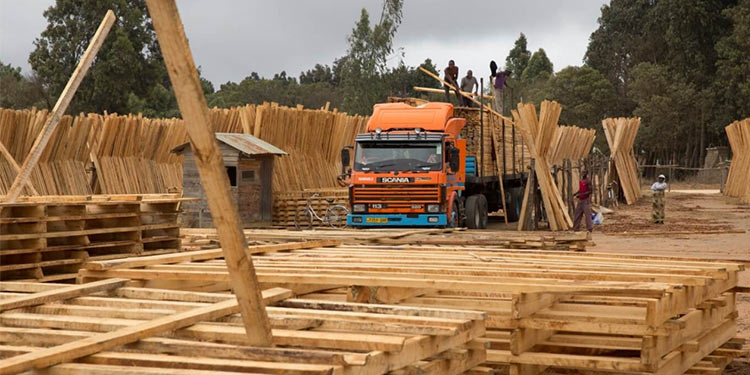
The Forestry Development Trust (FDT) is collaborating with all sectors of tree growers and various public and private forestry service providers in Tanzania’s Southern Highlands to improve the commercial forestry industry by supporting market system adjustments. A specific emphasis is made on ensuring that small to medium-scale tree farmers improve their position and contribute to the commercial forestry industry.
Aside from the increase of small and medium-scale tree producers, there must be an acknowledgment of the various supply circumstances encountered in the Southern Highlands, which have a direct influence on the profitability of investments by private actors, the public sector, and development efforts. The viability of any proposed business model in an area will be determined by a set of enabling conditions that include the volume of woodlots, the quality of woodlots, grower dispersal, grower aggregation, supply predictability, infrastructure quality, and the presence of lead actors demonstrating good practice.
Historically, this has resulted in the industry and supply base expanding quickest near government plantations, as expenditures in infrastructure and supply security have driven out other market participants.
Demand for wood products is primarily driven by the building, furniture, and paper industries. Other industries that use wood include electricity transmission, which uses eucalyptus poles (a significant market for STGs), and transportation, which uses wood in the form of pallets and boxes. The building sector and paper consumption are projected to produce substantial growth in wood product demand, more than tripling in round wood.
Tanzania’s commercial forestry industry has considerable potential to enhance the earnings of small tree producers while also driving industrialization and employment in primary and secondary value chains.
Tanzania’s commercial forestry sector is in transition, as the supply base shifts away from big corporate and government plantations and toward small and medium-scale tree farmers. This shift in supply has caused problems since the processing environment is not set up to properly service small farmers, and the quality and productivity of their woodlots are low, implying that the industry is functioning well below its potential. With small and medium-sized tree farmers expected to remain major players in the industry, there is a critical need to maintain a focus on driving improved production and quality in their woodlots.



